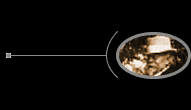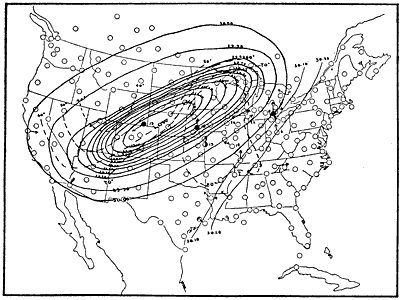


 |
  |
|
|
ALAS! that I should have to record an incident such as should never have happened in the midst of that woeful scene! Whilst struggling with the painful impressions produced in my mind by the spectacle on which I looked, my attention was attracted to another quarter by the sound of voices, raised in loud excitement. The cause of the tumult was this: In the midst of the universal consternation pervading all minds, a man was found degraded enough to insult not only the general sorrow and mourning but also death itself. Enslaved by the wretched vice of avarice, he had just been taken in the act of despoiling the bodies of the dead of whatever objects the fire had spared. A jury was formed, his punishment put to the vote, and he was unanimously condemned to be hanged on the spot. But where was a rope to be found? The fire had spared nothing. Somebody proposed substituting for the former an iron chain which had been employed for drawing logs, and one was accordingly brought and placed around the criminal's neck. Execution was difficult under the circumstances; and whilst the preparations dragged slowly on, the miserable man loudly implored mercy. The pity inspired by the mournful surroundings softened at length the hearts of the judges, and, after having made him crave pardon on his knees for the sacrilegious thefts of which he had been guilty, they allowed him to go free. It may have been that they merely intended frightening him. Weary of noise and tumult, and longing for solitude, I left my previous companions, and followed for a considerable distance that road to Oconto on which I had seen so many vehicles entering, turning their backs on the river to which I was hastening with the tabernacle. I had not gone far before I saw much more than I would have desired to see. All in this line had perished, and perished in masses, for the vehicles were crowded with unfortunates who, flying from death, had met it all the sooner and in its most horrible form. In those places where the flames had enfolded their victims in their fiery clasp, nothing now was to be seen but calcined bones, charred mortal remains, and the iron circles of the wheels. It was with some difficulty that the human relics could be distinguished from those of the horses. The workmen of the Company were employed in collecting these sad memorials and burying them by the wayside, there to remain till such time as the friends of the dead might wish to reclaim and inter them in a more suitable manner. I left them at their mournful task, and returned to the site where our church had so lately stood. There also all was in ashes, nothing remaining save the church bell. The latter had been thrown a distance of fifty feet; one half was now lying there intact, while the other part had melted and spread over the sand in silvery leaves. The voice of this bell had been the last sound heard in the midst of the hurricane. Its lugubrious note yet seems at times to strike on my ear, reminding me of the horrors of which it was a forerunner. The graveyard lay close to the church, and I entered and waited there; for I expected momentarily the arrival of a funeral. It was that of a young man who had died the evening previous, in consequence of the terrible burns he had received. Never was burial service more poverty-striken nor priest more utterly destitute of all things necessary for the performance of the sad ceremony. Nor church, nor house, nor surplice, stole nor breviary: nothing save prayer and a heartfelt benediction. I had felt this destitution still more keenly on two or three previous occasions when asked by the dying for the sacrament of Extreme Unction, which it was out of my power, alas, to administer to them. I left the graveyard with a heavy heart, and turned my steps in the direction of the river, which I had to cross in order to seek for my tabernacle with whose ultimate fate I was unacquainted. A bright ray of consolation awaited me and seldom was consolation more needed. I crossed the river on the half-charred beams of the bridge which had been joined together so as to offer a means of passage, though a very perilous one, to those who chose to trust themselves to it. I had barely reached the other side when one of my parishioners hastened to meet me, joyfully exclaiming: "Father, do you know what has happened to your tabernacle?" "No, what is it?" "Come quickly then, and see. Oh! Father, it is a great miracle!" I hurried with him to that part of the river into which I had pushed as far as possible my wagon containing the tabernacle. This wagon had been blown over on its side by the storm; whilst the tabernacle itself had been caught up by the wind and cast on one of the logs floating on the water. Everything in the immediate vicinity of this spot had been blackened or charred by the flames; logs, trunks, boxes, nothing had escaped, yet, strange to say, there rose the tabernacle, intact in its snowy whiteness, presenting a wonderful contrast to the grimy blackness of the surrounding objects. I left it in the spot where it had thus been thrown by the tempest for two days, so as to give all an opportunity of seeing it. Numbers came, though of course in that time of horror and desolation there were many too deeply engrossed with their own private griefs to pay attention to aught else. The Catholics generally regarded the fact as a miracle, and it was spoken of near and far, attracting great attention. Alas! Nothing is more evanescent than the salutary impressions produced on the mind of man by divine blessings or punishments. Time and the preoccupations of life efface even the very remembrance of them. How few there are among the rare survivors of the fire that swept Peshtigo from the face of the earth who still see the power of God in the calamity that then overwhelmed them as well as in the preservation of the tabernacle, events which at the time of their occurrence made so deep an impression on their minds. When the duties which had detained me three days amid these mournful scenes were completed, I took the tabernacle from the place which it had occupied of late and sent it on to Marinette where I intended soon saying mass. When the right time arrived, I forcibly opened the tiny door. There--circumstance as wonderful as the preservation of the tabernacle in the midst of the conflagration--I found the consecrated Host intact in the monstrance while the violent concussions the ciborium must have undergone had not caused it even to open. Water had not penetrated within, and the flames had respected the interior as well as exterior, even to the silky tissue lining the sides. All was in a state of perfect preservation! These sacred objects, though possessing in reality but little intrinsic value, are nevertheless priceless in my eyes. I prize them as most precious relics, and never look at or touch them without feeling penetrated with sentiments of love and veneration such as no other holy vessels, however rich and beautiful, could awake within me. In the little chapel at Marinette, which replaces the church burned there more than two years ago, the same tabernacle is on the altar and contains the same monstrance and ciborium which were so wonderfully preserved from the flames, and, daily, during the holy sacrifice, I use them with a species of religious triumph as trophies of God's exceeding mercy snatched so marvellously from destruction. I must beg my readers to return with me for a little while to the banks of Peshtigo River--but not to linger there long. Before removing the tabernacle I was busily occupied three days and two nights, now in seeking for the dead, then in taking up from the water various objects which I had thrown by armfuls, at the moment of leaving my house, into the wagon and which had been overturned with it into the river. The most precious of all these was the chalice, which I was fortunate enough to find, together with the paten. My search was greatly facilitated by the opening of the dam and letting out of the waters which were here fifteen or twenty feet in depth. This step was necessary for the finding of the corpses of those persons who, either seized by cramps, or drawn in by the current, had been drowned during the night of the hurricane. For the space of these three days our only habitation was the tent, the shelter of which had been so arbitrarily refused me the preceding Monday. It covered us during our meals, which we took standing and as best we could, and during the night protected the slumbers of those who could sleep, a thing I found impossible. Our beds were made on a most economical plan--the river sand formed our substitute for mattresses, and a single blanket constituted our covering. |
||
 U. S. Weather Bureau map, 5:35 P.M. October 8, 1871 |
||
|
During this period I first learned the fate of the city of Chicago. A physician, come from Fond du Lac to attend to the sick and burned, brought a newspaper with him, and in it we read of the terrible ravages wrought by fire, on the same night, and, strange to say, about the same hour, not only at Peshtigo but in many other places and above all at Chicago. This great conflagration at Chicago proclaimed to the world by the myriad voices of journal and telegraph, created far and wide an immense outburst of compassion in favor of the unfortunate city, diverting entirely the general attention from the far more appalling calamities of which we had been the hapless victims. |
||